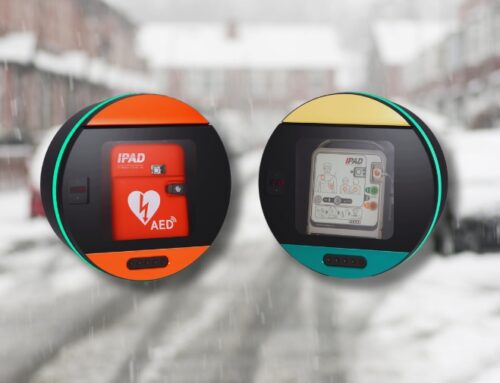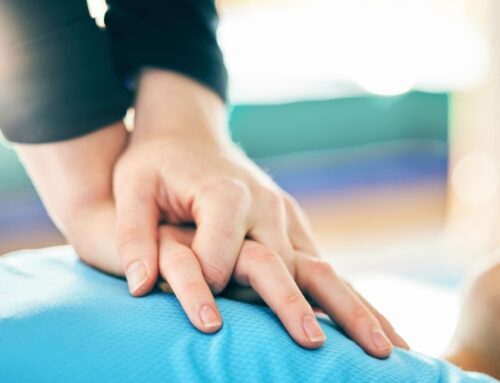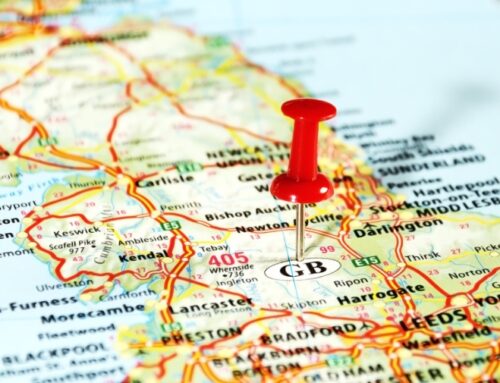[vc_row][vc_column][vc_column_text]In honour of World First Aid Day on 11th September, we detail the current guidance on performing CPR during the pandemic.
“How do you perform CPR?” It’s one of the most common questions we get asked here at WEL Medical, and something we cover extensively using Brayden Manikins on our specially-designed training days.
Sadly, it’s not surprising we hear it so much. Especially when you consider that only 15% of adults in the UK have the skills and confidence to save a life.
Adding to the widespread confusion is the fact that, during Covid-19, medical care and first aid have been forced to adapt.
As a result, we’ve recently been hearing another question even more frequently: “how do you give CPR during the pandemic?”
To answer that question here, it’s helpful to break things down into two stages, the first one being…
1. What changes has Covid caused to CPR guidance?
As part of its pandemic response, the UK government published special Covid-19 Guidance for First Responders which includes:
- Cleaning hands thoroughly before and after patient contact
- Wearing disposable gloves and a surgical face mask unless giving mouth-to-mouth
- Using goggles in situations where splashes or fluid contamination may be possible
[/vc_column_text][vc_empty_space height=”16px”][vc_single_image image=”2390″ img_size=”full”][/vc_column][/vc_row][vc_row][vc_column][vc_empty_space height=”36px”][vc_column_text]Our partners at the Resuscitation Council offer additional advice to all would-be rescuers (not purely professional ones) on how to perform CPR in the wake of Covid-19. This includes:
- Placing a cloth or towel over the patient’s mouth and nose and then attempting compression-only CPR and early defibrillation until an ambulance arrives
- Wearing any PPE the rescuer has access to
- Making use of defibrillation as early as possible. (Resus Council notes that this does not increase risk of infection with Covid-19)
- Washing hands with soap and water or alcohol gel immediately after the rescue event is over and seeking advice from either NHS 111 or a medical advisor.
2. Giving CPR during the pandemic
With those changes in mind, official guidelines on how to perform CPR in the aftermath of Covid-19 have changed.
These are the six simple steps the British Heart Foundation currently offers for giving CPR during the pandemic:
- Shake the person gently and shout for help
- Call 999 and request an ambulance for immediate arrival
- Don’t put your face close to theirs. If you think there’s risk of infection, use a towel or a piece of clothing and lay it over their mouth and nose
- Give chest compressions only – do not give rescue breaths
- Continue until an ambulance arrives
- After the ambulance crew have taken over wash your hands thoroughly with soap and water or use an alcohol-based hand gel
[/vc_column_text][vc_empty_space height=”16px”][vc_row_inner][vc_column_inner][vc_column_text]
Why acting immediately matters
[/vc_column_text][/vc_column_inner][/vc_row_inner][vc_empty_space height=”16px”][vc_single_image image=”2287″ img_size=”full”][vc_empty_space height=”16px”][/vc_column][/vc_row][vc_row][vc_column][vc_column_text]The steps above fit into what’s known as The Chain of Survival; a lifesaving process involving:
- Early recognition of a cardiac arrest and immediate calling for help
- Early CPR to keep the heart pumping blood around the body and buy time for the emergency services to arrive
- Early defibrillation to restart the heart
- And early advanced care (also called post-resuscitation care) to restore quality of life to the person who experienced a cardiac arrest.
Each minute that goes by without CPR and defibrillation during a cardiac arrest erodes 10% of a person’s chances of surviving a sudden cardiac arrest. That makes knowing and following The Chain of Survival absolutely crucial to saving lives.
To understand the part defibrillation plays in this process, read our blog What Happens When You Use a Defibrillator.
Helping you apply CPR and defibrillation to save lives
At WEL Medical, we believe every life matters and have dedicated our entire business to ensuring as many people as possible have access to lifesaving skills and equipment.
That’s why we set up Defib Angels, an initiative to raise awareness about the need for CPR and defibrillation in local neighbourhoods.
We also offer a range of easy-to-use automated external defibrillators (AEDs) and recently partnered with the Premier League, who are offering these for free to grassroots football clubs across England via the Premier League Defibs website.
If you feel your local area or sports team could use lifesaving equipment and training, please get in touch – we’ll be happy to have a chat.
Related articles
For more information on medical care and first aid during Covid-19, defibrillators and The Chain of Survival, see the following posts:
- Places You Wouldn’t Think Need a Defib (But Really Do!)
- WEL Medical and Premier League Team Up for Lifesaving Grassroots Defibrillation Deal
- What Happens When You Use A Defibrillator?
- Soccer Shock: Why Football Needs Defibrillators at Every Level
[/vc_column_text][/vc_column][/vc_row]





